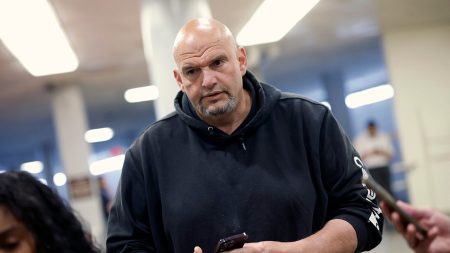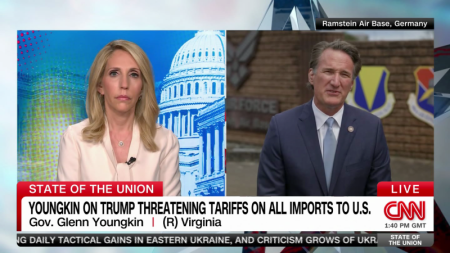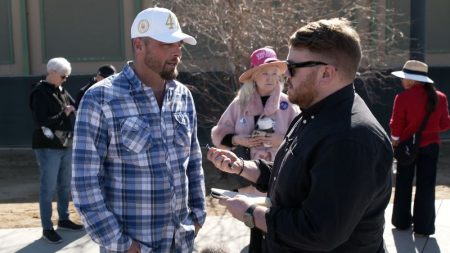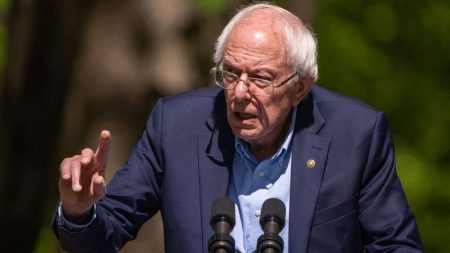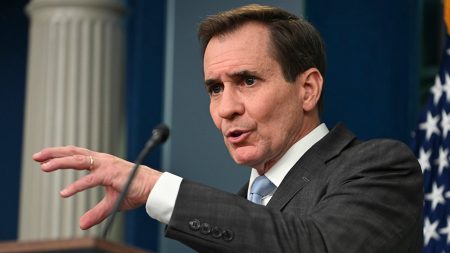House Republicans are facing division over how to approach the reconstruction of the Francis Scott Key Bridge following a deadly collapse that occurred when a Singapore-linked container ship collided with the structure. The incident caused the bridge to fall into the water, prompting the closure of the Port of Baltimore. President Biden has pledged federal funding for the restoration efforts, with estimates suggesting it could cost up to $2 billion. However, some Republican lawmakers, including Rep. Andy Harris of Maryland, are calling for the private companies involved in the collision to cover the costs, arguing that American taxpayers should not be burdened with the bill.
Rep. Ralph Norman of South Carolina criticized Biden’s promise of federal funding as “absurd” and “idiotic,” suggesting that the funds should come from reallocating aid designated in Biden’s infrastructure law. Another GOP representative, Jeff Duncan of South Carolina, emphasized the need to carefully consider spending on infrastructure projects, especially with the national debt at $34 trillion. Despite some pushback within the GOP, lawmakers like Rep. Tom Cole of Oklahoma, who chairs the House Appropriations Committee’s transportation subcommittee, expressed openness to supporting federal funding for the bridge reconstruction. The closure of the Port of Baltimore is expected to have significant economic implications, affecting the national economy by disrupting the flow of automobiles, agricultural products, and other supplies.
Maryland Governor Wes Moore has committed to doing everything possible to facilitate recovery efforts following the bridge collapse, emphasizing the importance of restoring the Port of Baltimore to ensure the region’s economic vitality. Treasury Secretary Janet Yellen suggested that insurance payments may help cover some of the costs associated with the reconstruction, but GOP Rep. Tim Burchett of Tennessee, who has experience dealing with disaster aftermath, pointed out that insurance claims can take time to process. Burchett expressed willingness to consider federal funding for the bridge reconstruction, especially if insurance payments could later be reimbursed to the government. Given the significant impact of the bridge collapse on the affected communities, there is a recognition of the need for a comprehensive and timely response to address the challenges posed by the incident.
The House GOP leaders are navigating their slim majority and differing perspectives on how to address the bridge collapse and reconstruction efforts. While some members have raised concerns about federal funding and urged alternatives, such as seeking compensation from the companies involved in the collision, others have highlighted the importance of restoring the Port of Baltimore and supporting the national economy. Rep. Cole acknowledged the significance of the port’s closure and expressed willingness to support federal funding for the reconstruction, emphasizing the interconnectedness of the port’s activities with the broader national economy. The complexities surrounding the bridge collapse, including the potential cost of reconstruction and the need for timely assistance, underscore the importance of bipartisan cooperation and effective leadership in addressing the aftermath of disasters.
The division within the House GOP over federal funding for the Francis Scott Key Bridge reconstruction reflects broader debates over infrastructure investment, fiscal responsibility, and disaster response. While some lawmakers caution against hasty spending and prioritize debt reduction, others highlight the urgency of rebuilding critical infrastructure and supporting economic recovery. The aftermath of the bridge collapse underscores the challenges of coordinating federal, state, and private sector resources to address emergencies and mitigate their impact on communities. As officials work to assess the damage, develop recovery plans, and secure necessary funding, the role of political leaders in setting priorities, mobilizing resources, and ensuring accountability will be crucial in guiding the restoration efforts and addressing the underlying issues highlighted by the incident.






